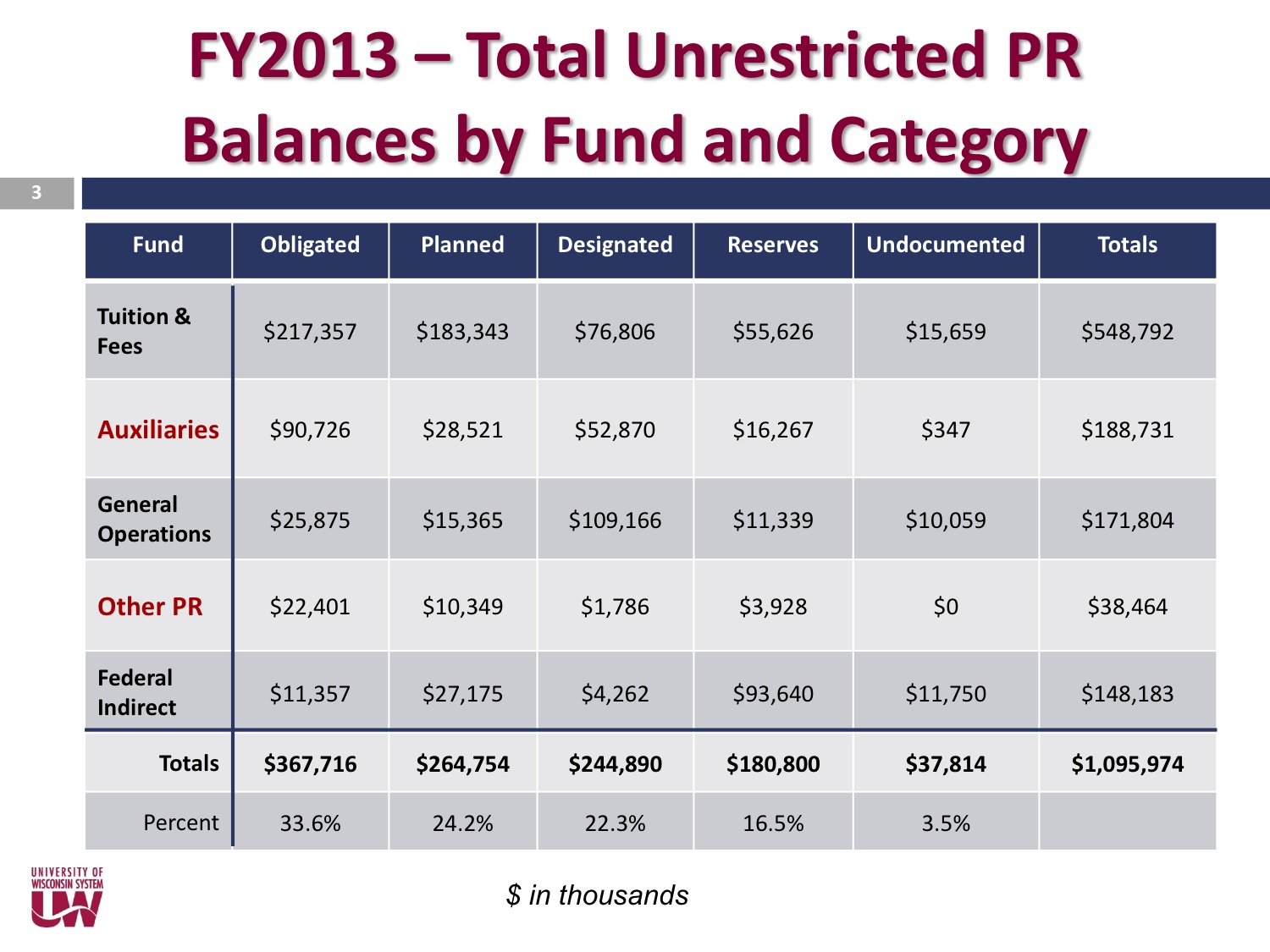The 2013-14 regular legislative session ended last month and attention has shifted to fall elections.
PROFS was very active in the legislative process, registering positions on bills and maintaining regular contact with key legislators and staff on important issues like compensation, faculty governance, and funding for the university.
Classified Research AB 729, a bill that will allow classified research on UW System campuses, was signed into law. PROFS registered in favor of this bill.
Financial Reserves The legislature’s Joint Committee on Finance approved a revised plan for managing and disclosing UW System cash balances and fund reserves on May 6. The legislature directed UW System to develop a plan as part of the 2013-15 biennial budget (Act 20), and the Joint Committee on Audit requested additional changes after a plan was presented to them on November 20, 2013. The Board of Regents and audit committee approved those revisions, but the finance committee voted for several changes.
The finance committee-approved plan requires individual campuses that hold more than 12 percent of their total fiscal year expenditures in reserve to provide justification to the regents and submit a spending plan for tuition, auxiliary operations, general operations, and unrestricted program revenue. Campuses are not required to hold a minimum fund balance, but campuses with a deficit must report a savings plan to the regents. The plan approved by the regents and audit committee required minimum reserves of 10 percent and the reporting threshold was triggered when funds exceeded 15 percent of expenditures.
HR Design The legislature’s Joint Committee on Employment Relations approved new personnel plans for UW-Madison and UW System. The legislature directed the university to develop plans to be implemented by July 1, 2015 as part of the 2011-13 biennial budget, but never approved them. Chancellor Rebecca Blank told the committee she plans to request the authority to award merit raises, which are not currently allowed under state statutes.
Tuition Freeze Governor Scott Walker proposed an additional two-year freeze on University of Wisconsin System tuition. The governor said his proposal was a direct result of the recent disclosure that UW System will finish the current fiscal year with about $1 billion in reserve. Last year, the governor called for a two-year tuition freeze after the university was found to have just over $1 billion in reserve.
Voter ID Wisconsin’s voter ID law (2011 Wisconsin Act 23) was struck down April 29. United States District Judge Lynn Adelman wrote in his decision the law places an undue burden on minorities and the poor and violates the Voting Rights Act. Adelman’s ruling bars enforcement of the law. Governor Scott Walker said last month he could call the legislature into special session if the law was overturned, and State Attorney General J.B. Van Hollen said he will appeal the decision. PROFS registered against AB 7, legislation that became the state’s voter ID law in 2011.
Fall Elections The legislature will experience its largest turnover since the 1970’s. Seven state senators and 22 members of the assembly have announced they will not run for reelection. Legislators must declare non-candidacy by May 23, and nomination papers must be filed by June 2.
The Legislative Reference Bureau has prepared a bulletin on tenure and turnover in the Wisconsin Legislature between 1940 and 2012.

 The Milwaukee Journal Sentinel is offering its opinion on key issues in the gubernatorial race, and K-12 and higher education is the focus of
The Milwaukee Journal Sentinel is offering its opinion on key issues in the gubernatorial race, and K-12 and higher education is the focus of 
